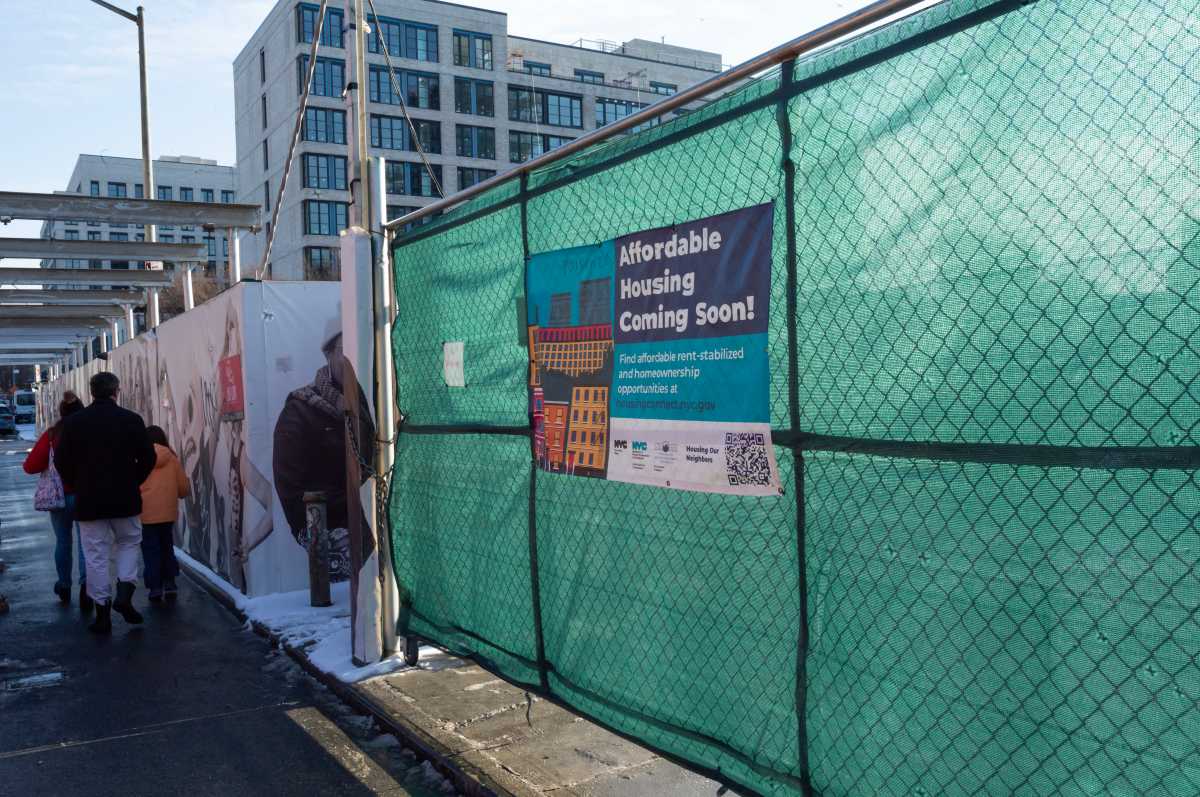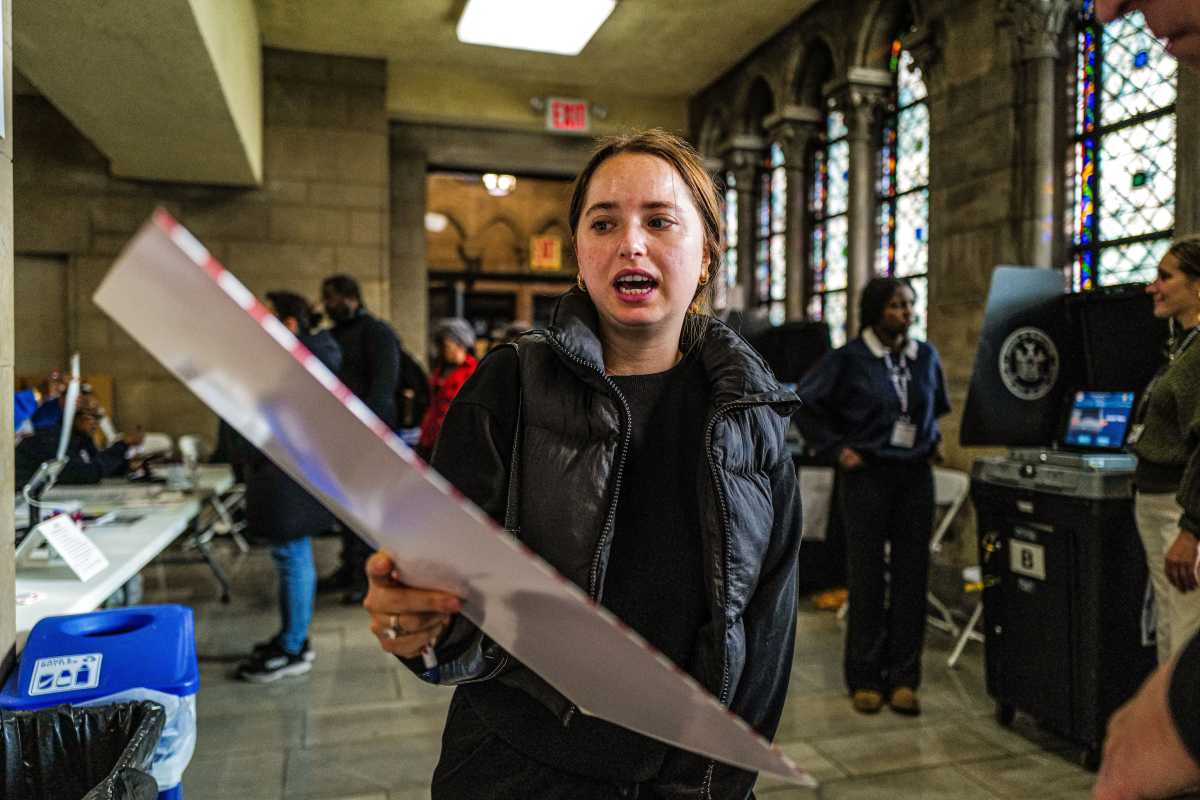The primary assembly of Mayor Eric Adams’ second Constitution Revision Fee at 9 MetroTech Middle in Brooklyn. Feb. 11, 2025.
Picture courtesy of NYC Constitution Revision Fee
Making it simpler to construct reasonably priced housing in New York Metropolis and opening native partisan primaries to voters of any occasion are simply two of the concepts being floated by an area panel that voters could get to determine on this November.
The panel — often called a “Charter Revision Commission” — outlined the proposals ready by its workers in a preliminary report gleaned from a number of months of public hearings.
Mayor Eric Adams convened the 13-member group late final yr to assessment the Metropolis Constitution — town’s structure — with a watch towards addressing the Massive Apple’s historic housing disaster, by which out there flats are scarce and rents have skyrocketed.
Nonetheless, after listening to from roughly 400 New Yorkers in over 16 hours of testimony at hearings throughout the 5 boroughs, together with written feedback from one other 450 folks, the fee can also be seeking to sort out quite a lot of points past housing. It’s exploring methods to spice up turnout in native elections, make the 5 boroughs extra resilient to local weather change, and pay nonprofits contracted with town sooner.
“This preliminary staff report is an ambitious document that presents proposals to ensure that New York City remains an engine of opportunity, prioritizing inclusivity for all New Yorkers, especially as we seek to make housing more accessible and affordable across all five boroughs,” stated Richard Buery, Jr., fee chair and CEO of the anti-poverty group Robinhood.
 Views of the Gowanus neighborhood, the place dozens of enormous reasonably priced housing building initiatives alongside the Gowanus Canal on Dec. 24, 2024 in Brooklyn.Picture by Andrew Lichtenstein/Corbis through Getty Pictures
Views of the Gowanus neighborhood, the place dozens of enormous reasonably priced housing building initiatives alongside the Gowanus Canal on Dec. 24, 2024 in Brooklyn.Picture by Andrew Lichtenstein/Corbis through Getty Pictures
The preliminary report is hardly the final step within the fee’s means of drafting proposals that might go earlier than metropolis voters within the November basic election. The panel will proceed to carry public hearings over the subsequent couple of months to obtain enter on its preliminary report, debate it, and in the end draft closing proposals.
It can then vote on which measures, if any, make it onto the poll.
It’s the second such fee Adams has assembled throughout his tenure. The primary, which he additionally convened final yr, superior proposals that gave Metropolis Corridor extra say in shaping council laws and expanded town’s Sanitation Division’s authority—measures that had been in the end accredited by voters in November.
Housing ‘fast-track’
To facilitate the development of extra housing, the fee is contemplating altering the Metropolis Constitution to create a “fast-track” course of for sure classes of residential growth—together with small and reasonably priced initiatives—outdoors of town’s onerous Uniform Land Use Evaluate Process (ULURP).
In accordance with testimony heard by the fee, the change is important as a result of ULURP is such a prolonged and costly course of that solely large-scale developments have the assets to undergo it. This successfully shuts out smaller initiatives and makes it tougher to construct much-needed reasonably priced housing.
Moreover, the fee is contemplating amending the constitution to take a citywide method to housing building quite than the neighborhood-focused planning underneath ULURP. The present course of permits native council members to have the ultimate say on whether or not initiatives get constructed of their districts, usually stymying growth.
The panel is exploring concepts like growing a citywide evaluation of how a lot housing is required and the place it must be constructed, and empowering higher-level officers like borough presidents and the Metropolis Council speaker to have extra energy over the place new building takes place.
Get out the vote
 A voter with their lined poll at Riverside Church in Harlem on Nov. 5, 2024.Picture by Dean Moses
A voter with their lined poll at Riverside Church in Harlem on Nov. 5, 2024.Picture by Dean Moses
To fight historically low turnout in metropolis elections, the fee is contemplating altering the construction of New York’s main system and transferring native contests from odd to even-numbered years.
The panel is contemplating altering town’s present “closed primary” system, by which solely these registered to a political occasion can vote in that occasion’s main. As a substitute, it proposed opening each events’ ranked-choice primaries to voters no matter affiliation, together with those that aren’t registered to both occasion and infrequently get shut out of primaries.
It is usually contemplating shifting metropolis elections from odd to even-numbered years, bringing them in keeping with presidential, Congressional, and state elections.
Good authorities teams, similar to Residents Union, consider each strikes would enfranchise way more voters and dramatically enhance turnout.
“An open primary system – with top two general elections – will give New York City’s more than one million independent voters the voice they deserve in deciding who leads our city,” stated Residents Union Chair John Avlon. “Holding city elections in even-numbered years will significantly increase voter turnout — especially among young people and communities of color.”






